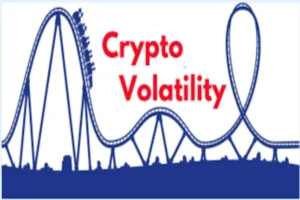NMN Supplements vs NAD+ Supplements: Which Is Better for You?

As the quest for longevity and well-being continues, supplements targeting aging have become increasingly popular. Among these, NMN (Nicotinamide Mononucleotide) and NAD+ (Nicotinamide Adenine Dinucleotide) supplements stand out for their potential anti-aging benefits. Both are linked to improved energy metabolism and cellular repair, but they work differently within the body. Choosing the right supplement can be challenging and requires understanding how these compounds affect health and aging. This article delves into the science behind NMN and NAD+, compares their benefits, and helps you decide which may be better.
NMN vs NAD+: Comparing the Benefits and Effectiveness
When comparing NMN and NAD+ supplements, the debate often centers around bioavailability and efficacy. NMN is more stable in the bloodstream and can be readily converted into NAD+ after absorption into the tissues. This indirect route may be more efficient at raising NAD+ levels in the body. The conversion process is a natural and necessary step within the NAD+ biosynthesis pathway, which the body regulates.
In contrast, NAD+’s direct supplementation approach aims to increase levels without conversion. Theoretically, this could result in more immediate effects. However, the supplement’s stability and ability to enter cells remain scrutinized. The challenge lies in ensuring that NAD+ reaches cells in adequate quantities to confer benefits, an area where NMN may have the edge due to its conversion mechanisms.
Evidence to date provides valuable insight into the benefits and effectiveness of both NMN and NAD+ supplements. Yet the comparative studies remain limited, leaving room for further investigation. The decision between NMN and NAD+ supplementation ultimately depends on the results of ongoing and future research and individual responses to these supplements.
For those seeking more information, resources like www.nmn.com offer valuable insights into the latest news and research surrounding nicotinamide mononucleotide, a biosynthetic precursor to nicotinamide adenine dinucleotide (NAD+). NAD+ is an essential coenzyme present in all living cells, with decreasing intracellular concentrations as people age. Research suggests NMN supplementation restores NAD+ levels in cells to some degree.
Factors to Consider When Choosing Between NMN and NAD+ Supplementation
Deciding between NMN and NAD+ supplements involves several factors. Bioavailability and the action method are perhaps the most critical since they determine how well the body can utilize the supplement. The cost can also play a significant role, with NMN supplements typically being more expensive due to the additional manufacturing steps required to stabilize them.
User experience and reported benefits are other vital considerations. While anecdotal reports should not replace scientific evidence, they can provide insights into the potential effects of the supplements. Additionally, individual health status and goals might influence the choice. Individuals seeking to improve particular health metrics may lean towards one supplement based on the preliminary research supporting its benefits in those areas.
Quality and brand reputation are non-negotiable when choosing a supplement. Reliable brands that are transparent about their sourcing and manufacturing processes can provide confidence in the product you’re consuming. Third-party testing for purity and potency is a mark of quality that should not be overlooked.
Personalizing Your Approach to Supplementation: NMN or NAD+?
Personalization is key in supplementation, and the NMN vs. NAD+ debate is no exception. Individuals have unique biological needs and responses to supplements. Therefore, tailoring the choice to fit personal health objectives and lifestyle is essential. For some, NMN’s role as a precursor to NAD+ might be more appealing, while others may prioritize the direct boost NAD+ purports to offer.
It is also important to set realistic expectations regarding the results of supplementation. Neither NMN nor NAD+ is a magic bullet for aging, but both may contribute to a broader strategy for health and longevity that includes diet, exercise, and other proactive health measures. Combined with this, NMN or NAD+ could potentially enhance quality of life and fend off the signs of aging.
Self-monitoring can be beneficial when assessing the impact of these supplements. By keeping track of energy levels, cognitive function, and general well-being before and after starting supplementation, individuals can better determine which product, if any, is right for them.
Overall, the choice between NMN and NAD+ supplementation hinges on individual needs, preferences, and responses. While NMN offers a promising indirect pathway to elevate NAD+ levels, NAD+ supplementation provides a direct approach with potential immediate effects. Regardless of the choice, informed decisions, personalized approaches, and ongoing research are essential for optimizing the benefits of these anti-aging supplements.







